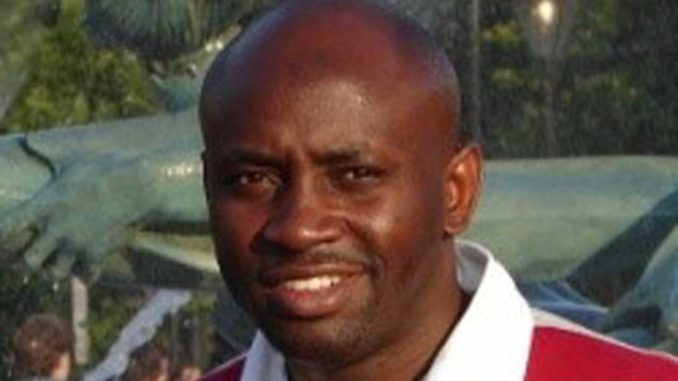
Julius Ibukun Agboola, who died on August 15, 2016, was one of the foremost leading academic giants in marine biogeochemistry and coastal management in Africa. With his passing at just 44, Nigeria lost a fine mind with a promising future.
He studied Fisheries Science at Lagos State University and obtained two masters degrees (Msc Fisheries Science 2000 and Msc Environmental Resource Management 2005) from same university respectively before proceeding on a scholarship to Hokkaido University Japan where he completed his Ph.D in Marine biogeochemistry in 2009.
He was a recipient of several awards, including the Japanese Government Scholarship Award, Global Centre of Excellence (GCOE) university travel award and United Nations Postdoctoral Fellowship Award amongst others.
Agboola who was a member of American Geophysical Union (AGU) and Association for the Sciences of Limnology and oceanography (ASLO) was a Fulbright scholar who won lots of grants, awards and scholarship to travel 28 countries within 10 years conducting researches, speaking at conferences and seminars on global environmental change and also working with other professionals, physicists, engineers, and IT specialists on the development of innovative submersible spectro fluorometer sensor at the Italian National Agency for New Technologies, Energy and Sustainable development.
With over 70 scientific publications to his credit, Dr. Julius Ibukun Agboola, the author of the book “Relevant Perspectives In Global Environmental Change” was also the principal investigator, research team leader and overall Co-lead of one of the biggest scientific Belmont forum funding project on Transformation and Resilience on Urban Coasts (TRUC) where the vulnerabilities of five major cities (New York, London, Tokyo, Kolkata and Lagos) to flooding and rising adverse climate change were revealed.
He was a marine environmental scientist, an ecosystem and resource management specialist and an experienced university teacher. As one of the steering members of the committee on Future Earth Coast, an international research agency, he concluded his Postdoctoral Fellowship programme with the United Nations University Institute of Advanced Studies (UNU IAS), having worked and conducted research with the UNU IAS Operating Unit Ishikawa/Kanazawa on Marine Governance and Coastal Management and Satoumi related studies.
He lectured and carried out research at the Department of Fisheries and the Centre for Environment and Science Education (CESE), Lagos State University, Lagos, Nigeria. Dr. Agboola’s research interests covered several aspects of global environmental change, including biogeochemical cycle of carbon and nitrogen in coastal ecosystems, land-ocean interaction, primary productivity, biodiversity, and examining the gradients and responses of physical, chemical and biological components of the aquatic ecosystems to environmental change.
Over the years, Agboola was able to develop excellent research aptitude, advanced interpersonal, communication and managerial skills. He was also competent in the field of natural sciences where he worked independently and as part of a team to achieve project goals.
His professional expertise spanned several aspects of global environmental change, including biogeochemical cycles of carbon and nitrogen in aquatic systems in relation to phytoplankton biomass and productivity; linking land-use in watersheds to coastal ecosystem productivity/degradation; coastal zones and biodiversity including mangroves and other wetlands; water resources and water quality management; examining the gradients and responses of physical, chemical and biological components of the aquatic ecosystems to environmental change; marine policy and, integrating social and biophysical issues for sustainability and climate change research.
He was also competent in aquatic resource (Fisheries) production and management. He was involved in projects on environmental safeguards and socio impact assessments, ecosystem services, resilience and vulnerability on urban coasts, and ecological restoration.
As a coastal biogeochemical scientist and an ecosystem and resource management specialist, he enjoyed smooth interdisciplinary working relationship with social scientists in integrating social and biophysical issues for sustainability and climate change research in the ECOSMAG project of the Global Land Project (GLP), Sapporo Nodal Office, and research projects in analyzing socio-ecological systems variation, governance and integrated management in coastal zones, and Environmental Impact Assessment and Audit studies at the United Nations University Institute of Advanced Studies (UNU IAS), Japan.
He had a budding interest in the application of GIS in coastal ecosystem dynamic studies, integrating social and biophysical issues for sustainability and climate change research.
He was also a representative of Nigeria and West Africa and a plenary session speaker at the International Atomic Energy Agency summit on Studying Ocean Acidification and its effects on Marine Ecosystems held at Cape Town from 2nd November to 6th November 2015. He was able to initiate a partnership between Future Earth Coast (LOICZ) and University of Lagos before his demise.
Agboola was also one of the guest speakers and conference panelist at Adaptation Future Conference of Global Programme of Research on Climate Change, Vulnerability, Impacts and Adaptation (PROVIA) organised by the European Commission (EU) and the Government of the Netherlands at Rotterdam in May 2016 with over 2, 000 participants from 103 countries in attendance.
By the time he died on the 15th of August 2016, though his stay on earth was brief, he had done so much for humanity that generations yet unborn would live to benefit from the wealth of his contributions to knowledge.
Agboola wrote from the United Kingdom.
END

Be the first to comment